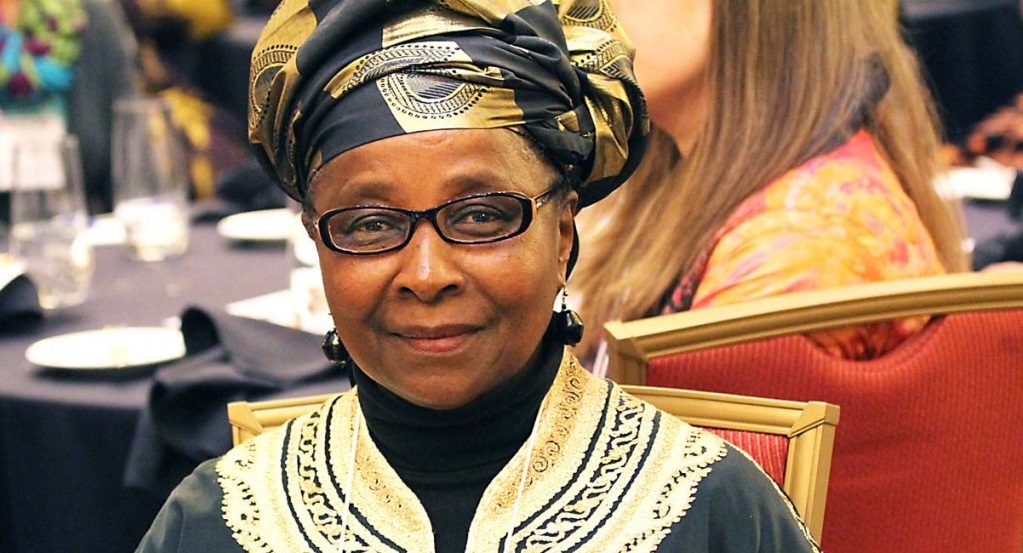Prof Micere Githae Mugo. PHOTO | COURTESY
The epithet, a woman of four nations, would aptly describe renowned literary scholar, poet and teacher Prof Micere Githae Mugo, who died recently in the United States. She was born, studied, worked and lived in Kenya, Uganda, Zimbabwe, and the US.
She once declared: “I’m a child of the universe. I have lived in almost all the continents.”
The Kenyan academic, Prof Mugo, or simply Micere, who died on June 30, 2023, at the age of 81, was interred on July 31 at Oakwood Cemetery in New York.
Syracuse University was her last academic station before she retired and later succumbed to cancer, an illness that had dogged her for 16 years.
Alliance Girls High School
Micere was born in Baricho, Kirinyaga, on December 12, 1942, the daughter of two pioneer teachers. She went to primary school locally and later joined the prestigious Alliance Girls High School, at Kikuyu, from 1957 to 1960.
In 1961, she became the first African to join Limuru Girls High School, which had been a segregated academy for white girls. Micere emerged as the top student, earning herself a scholarship to go to Oxford University, which she declined and opted for Makerere University in Kampala, then the citadel of learning in East Africa.
She graduated from Makerere with a Bachelor of Arts degree in 1966 and gained her MA in Literature in 1973 from the University of New Brunswick in Canada. Five years later, she obtained her PhD in Literature from the University of Toronto.
Micere returned to Kenya in 1973, and became a lecturer at the University of Nairobi (UoN). She would later become the chairperson of the Literature Department, and the Dean of the Faculty of Arts, the first woman to hold such a position.
Crackdown on intellectuals
She taught at UoN until 1982, when she had to go into exile at the height of President Daniel arap Moi’s despotic rule and crackdown on intellectuals. She later taught at the University of Zimbabwe.
Speaking about her early life, Micere said she was brought up by a father who treasured his daughters as entitled to be treated on equal terms with boys.
She said: “We were not poor. In fact, my father had more than 150 workers on his land at a time. But he also taught us never to treat them, or anyone, like a lesser being,”
Her sister, Muringo Kiereini, who served for many years as the Chief Nursing Officer, was married to Jeremiah Kiereini, Mzee Jomo Kenyatta’s Defence Permanent Secretary and later the Head of the Public Service under President Moi and an astute businessman.
Her brother, Robinson Githae Mugo, is a former Cabinet minister and Kenyan Ambassador to the United States in Washington, DC.
Prof Henry Indangasi
The affable professor has, sadly, been trending since she died because of the acerbic pen of her former colleague at the University of Nairobi, Prof Henry Indangasi, who wrote a supposed critique that ended up being a needless vitriolic personal attack. Apparently, several decades of separation after Micere left the UoN had not erased the sharp differences between the two scholars.
Particularly annoying was Prof Indangasi’s dismissal of Micere as someone who was not a deep thinker, and his trivial traversing into personal innuendo and invasion of privacy that appeared aimed at exposing his former colleague’s sexual life.
While at UoN, Micere teamed up with top novelist Ngugi wa Thiong’o to write a play titled, The Trial of Dedan Kimathi. The two built up a powerful and compelling account of the circumstances surrounding the 1956 trial of Mau Mau freedom struggle hero Dedan Kimathi.
For his role in the rebellion against British colonial exploitation and misrule, Kimathi was eventually hanged, reportedly at Kamiti Maximum Prison on Nairobi’s northwestern outskirts, but his grave has never been located despite spirited appeals by Kenyan activists. Published in 1976, the play was staged to great acclaim at the continental festival of the arts, Festac77 in Lagos.
Micere also in 1976 wrote another play, the Long Illness of Ex-Chief Kiti, published by the East African Literature Bureau.
Besides the plays, she wrote six books and edited journals.
She was a professor of literature in the Department of African American Studies at Syracuse University. She taught Orature, Literature and Creative Writing.
Orature
Micere was professor emeritus of literature at Syracuse, where she spent the last part of her active academic career in the Department of African American Studies. She was a literary scholar, poet and playwright, who popularised the term, orature, which combined literary art with oral performance.
In 2021, the 120-year-old Royal African Society awarded Prof Micere Mugo the Lifetime Achievement in African Literature. The society honours and pays tribute to those who have made major contributions to African Literature. The presentation took place at the society’s annual lecture hosted at the School of African and Oriental Studies (SOAS) in the UK.
The first award winner was Margaret Busby, Britain’s youngest and first-ever Black woman publisher since the 1960s.
For Micere, this was an additional accolade to the East African Standard’s listing of her in 2002 as one of the Most Influential People in Kenya.
She was a proud African woman who ditched her English name, Madeleine, in pursuit of her real identity in a personal renaissance that reverberated throughout her adult life and career as an individual and a remarkable scholar.
Jwanyama22@gmail.com




